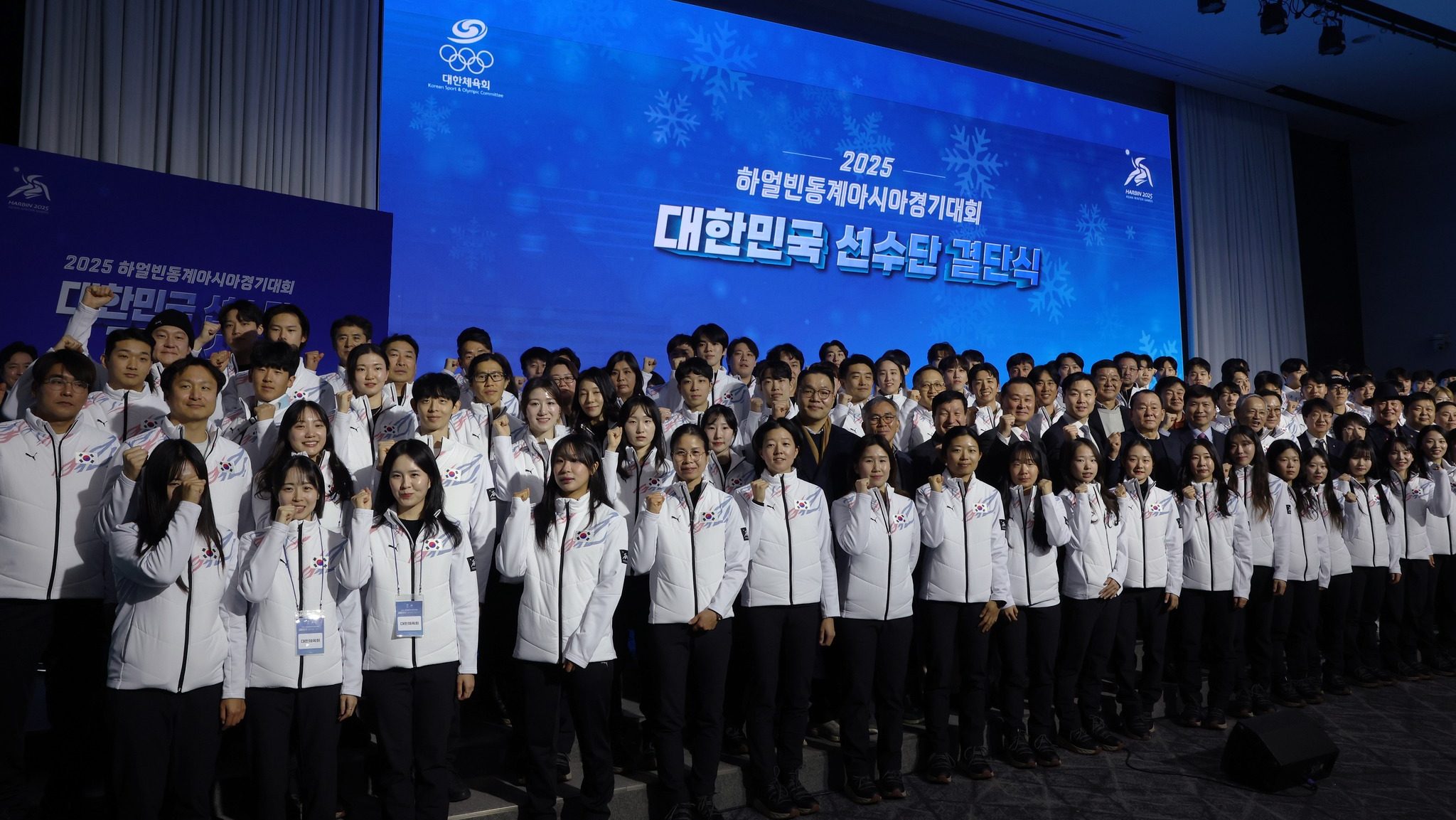KOREA: As the 2025 Asian Winter Games take place in Harbin from 7 to 14 Feb, South Korea aims for a strong performance across multiple disciplines. With a contingent of 149 athletes, the nation is determined to uphold its legacy in winter sports, particularly in short-track speed skating, figure skating, and skiing.
A tradition of excellence
Leading South Korea’s gold medal ambitions is the short-track speed skating team, a discipline where the nation has historically excelled. Head coach Mr Yoon Jae-Myung, in an interview with Yonhap News Agency (YNA), set an ambitious target: “We are looking at winning six gold medals or more. Our athletes are in decent form, and we’ll do our best to accomplish our goal.”
The women’s team is spearheaded by Ms Choi Min-Jeong, a three-time Olympic champion making a strong return after a sabbatical, alongside Ms Kim Gil-li, the reigning International Skating Union World Cup overall champion. Speaking to YNA, Ms Choi stressed the importance of a strong start: “The 2,000m mixed relay will be the first final, and we want to get off to a good start there.”
On the men’s side, Mr Park Ji-won, a two-time ISU World Cup overall champion, will lead South Korea’s charge. Acknowledging the formidable competition, particularly from China’s elite skaters, Mr Park told YNA: “I think all the top skaters at the competition are virtually on the same level in terms of their skills. It will come down to who can handle the mental side of the competition better”
Rising stars on ice
South Korea has also been making strides in figure skating, with young talents poised to make their mark. One such athlete is Ms Lee Hae-in, who is steadily building her reputation ahead of a potential Winter Games debut. Her performances in recent national and international competitions have drawn attention, as reported by The Korea Herald.
Skiing legacy
Since the establishment of YongPyong Resort in 1975, South Korea has seen remarkable growth in its skiing infrastructure and athlete development. The country now boasts 15 popular ski resorts and has been fostering winter sports culture, particularly after hosting the 2018 Winter Olympics in Pyeongchang. A report by Emory University’s History of Skiing highlighted how YongPyong was instrumental in influencing the country’s winter sports industry.
Historical context and future aspirations
South Korea’s journey in winter sports dates back to 1948, when the nation first participated in the Winter Olympics. Since then, except for 1952, it has consistently competed on the global stage. Hosting the 2018 Winter Olympics in Pyeongchang was a defining moment, marking its highest medal tally of 17, including five golds.
According to Wikipedia, South Korea’s commitment to winter sports has only strengthened over the years. The country is now looking to build on its past successes and secure a dominant position in the 2025 Asian Winter Games.
Looking ahead
As the competition in Harbin unfolds, South Korea’s athletes are not only competing for podium finishes but also to inspire future generations of winter sports enthusiasts. With a strong mix of experienced champions and emerging stars, the nation is expected to deliver a memorable performance.
For further insights into South Korea’s winter sports journey, The Korean Cultural Center New York provides a detailed overview of the country’s sporting heritage.

